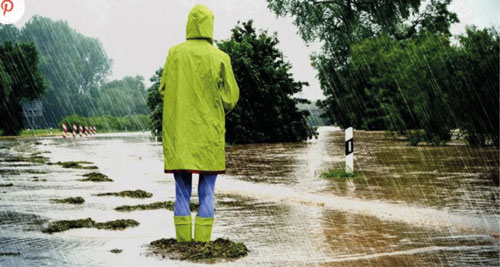Extreme weather events, such as droughts, heat-waves, wildfires, and floods, have a clear impact on the mental well-being of the people who experience them. However, the persistent anxiety about the future of life on our planet can also take its toll. In this Special Feature, we explore not only the direct effects of climate change on mental health but also the importance of building resilience and turning “eco-anxiety” into action.
How should we prepare mentally for the incoming effects of climate change and global warming? foto-jog/Getty Images
Imagine if astronomers discovered that a planet-destroying meteor is on a collision course with the Earth. Surely the world’s leaders would do every-thing in their power to deflect it and save the planet from catastrophe?
But suppose they didn’t? What if they dismissed the astronomers’ warnings and carried on with business as usual until it was too late?
This is the premise of Don’t Look Up, a satirical movie that has resonated powerfully with environ-mental campaigners who are frustrated at the failure of politicians and the media to treat climate change and loss of biodiversity as planetary emergencies.
Anxiety is a rational, adaptive response to a perceived threat if it provokes action to keep us safe from harm. But chronic anxiety in the face of threats over which we appear to have little control can lead to feelings of helplessness and even clinical depression.
Young people may be particularly vulnerable to such feelings when they witness a lack of urgency by the world’s political leaders to address environmental dangers such as climate change, habitat loss, and species extinction.
In a recent survey of 10,000 individuals aged 16–25 years in 10 countries, over 45% said their feelings about climate change had a negative impact on their daily lives and functioning.
Ratings of anxiety and distress were significantly associated with the impression that the government response to the climate emergency has been inade-quate.
One of the study’s authors, Caroline Hickman, Ph.D., from the University of Bath in the United Kingdom, is a psychotherapist specializing in eco-anxiety in children and young people.
“I’ve been listening for 10 years to children and young people telling me that they feel doomed, they feel abandoned, they feel betrayed,” she told a recent webinar about eco-anxiety organized by Public Policy Projects.










